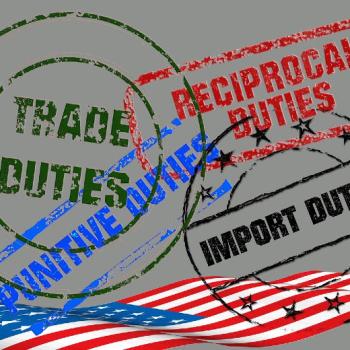In the 1970s and 80s, the biologist Paul Ehrlich became known for his predictions of doom and gloom: devastating food crises, declining life spans, environmental disaster. Did we avoid such outcomes because of better policies and practices in response to Erhlich's warnings? Or was it luck? How do you account for an improving world?
As humans, we're resourceful. We're fairly aware of what's going on and we're good at solving problems. It takes us a while to figure out problems, and takes us a while to figure out how to solve them, but then we solve them. The ozone layer became a problem, and they figured out what was causing it, passed laws to solve it, and now the ozone layer seems to be getting better. Same with air pollution.
People in the 1960s, 70s, 80s, realized there were problems and there were protests against these things. A lot of their solutions worked. And that's an important thing to realize—another downside of the constant banging of the gloom and doom drum is that if we say things are getting worse and worse, then we're saying everything we tried in the last 40-50 years didn't work.
You hail the intellectual virtue of someone like the statistician and environmentalist Bjorn Lomborg, who you say goes wherever the data take him even it's against his initial assumptions. What data discoveries have you made that led you to correct your initial assumptions?
With my first book, I had assumed that the long-term trends for Christianity in the United States were downward, which they're not. With the second book, I was surprised by how much better health has gotten and how much longer people are living. Also worldwide poverty—I'd figured that we'd sort of plateaued with extreme poverty in developing countries, and I didn't realize that over the last 30 years, it dropped in half in developing countries.
Do you worry that a "Hey, everything's working out OK" argument about the world will inspire people to inaction?
That would be very much a secondary worry. I think the far more likely scenario is that it's just ignored. The message is counter to the popular paradigm, and paradigms just don't change very easily. It doesn't matter that I'm right. The negative messages are so strongly believed and so strongly re-enforced, that really the data just do not matter.
I actually think the "Things are getting better, let's keep up the good work and do even more" approach is a very compelling motivation. The negative latent effect of the constant gloom and doom is inaction or ill-advised action. If everything is gloom and doom, people don't know what to act on. And why would people act if there's no evidence that things work? But if we could say that things 1-5 are going well and thing 6 is a problem, then let's work on thing 6.
I don't see the motivation for inaction that some people fear if we tell, as you put it, the "sunny" story, but I don't even think the sunny story will get out. And that's a frustration for me.
You are optimistic about the world and pessimistic about your own books.
I think a realistic view of the world has it getting better. A realistic view of the effect of books about things getting better is that it's just going to take a critical mass. And I don't know if there is an incentive for a critical mass.





